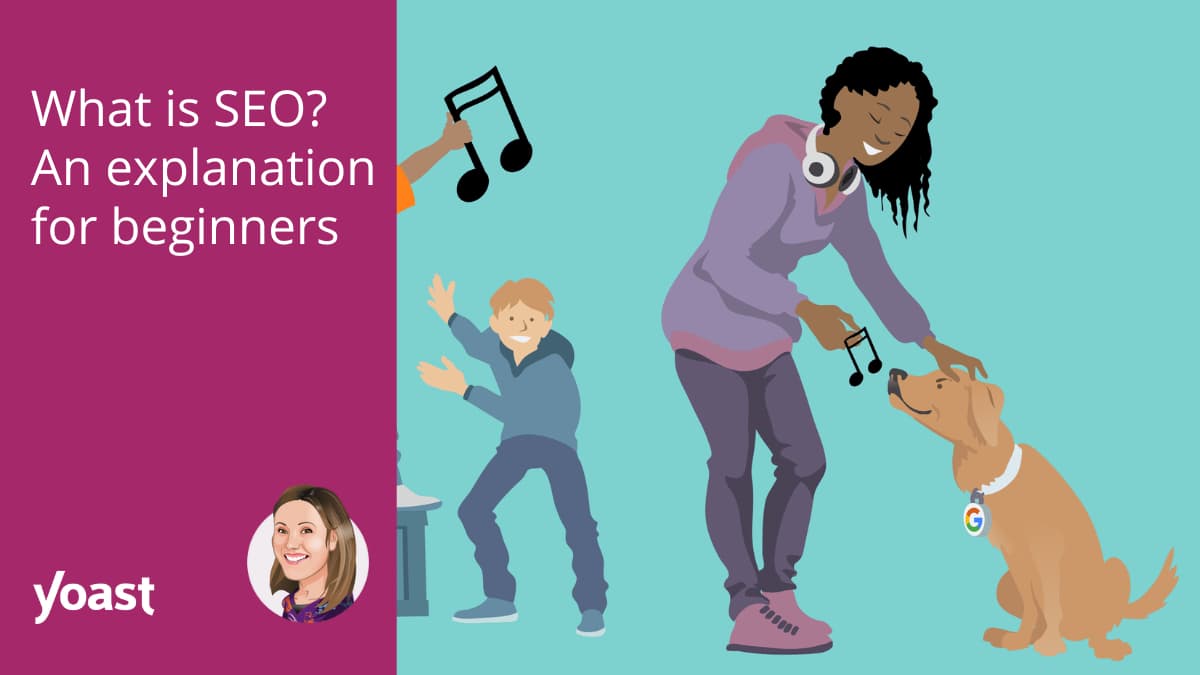Imagine you have your dream business, one you've put your heart and soul into. However, despite your hard work, the revenue isn't meeting your goals. But there's hope: this current situation isn't where you'll end up; it's just a starting point.
Before you consider giving up, think about a path brightened by digital marketing strategies – a way to transform your business.
In today's digital world, these strategies are like keys that can unlock new opportunities. By using them, you can reach new audiences and create connections that lead to increased sales.
Your business journey is far from finished; in fact, it's about to take an exciting turn.
Explore the possibilities of digital marketing in this article. You'll discover tactics that can reshape your path and bring you closer to the success you've been working hard for.
So, let's embark on this journey of discovery, because what's ahead has the potential to change the game. Your expedition begins right now.
Defining Digital Marketing
Digital marketing involves the use of the internet to connect with potential customers. A digital marketing campaign will appear on mobile phones, tablets, and computers. Your marketing team can use multiple tactics and online channels.
For example, you may distribute digital content via email, social media, or display ads. The right digital marketing strategy depends on your brand and goals. It can also vary based on the target market you want to reach, such as marketing to young adults on TikTok.
It's vital to compare different digital marketing strategies because not every strategy works for every brand.
You need to figure out what your goals are for your digital marketing plan. Then, you can choose the best options to help reach those goals.
Another reason to compare strategies is the cost of each. Running paid ads can easily cost a lot of money. On the other hand, organic digital marketing strategies can be more cost-effective, especially if you don't have a massive marketing budget.
The Top 10 Digital Marketing Strategies
In some cases, the first digital strategy you try is the perfect one. However, that's fairly improbable. In reality you’ll probably have to experiment with a few methods before you find the digital marketing strategy that works best for your business.
Still, you don't have to throw spaghetti at the wall to figure out what works. Instead, look at some of the most popular digital marketing activities and strategies.
1. Content Marketing
As the name suggests, content marketing uses digital content to educate and attract potential customers to your business. You can create various types of content, such as written content for blogs.
More recently, video content has become popular, especially due to platforms like TikTok. Use short-form and long-form videos to expand your reach. Social media platforms are all useful for publishing and distributing content.
What's more, content marketing is perfect for anyone who doesn't want to forcefully sell. Instead, you let your content speak for itself.
When you provide massive value, your ideal audience will want to work with you.
Proper content marketing can help your business save money, increase sales, and retain customers. Plus, your content marketing strategy can work for you over the long term to ensure the stability of your business.
2. Partner Programs
Partner programs are another useful type of digital strategy. When you set one up, your partners will help promote and sell what you have to offer. You can operate a partner program using one of multiple models.
For example, you may work with resellers. They have to sell your product or service to their audience, but you'll get a cut of the sale. Meanwhile, a consultant may simply recommend your business to their clients.
The latter example is similar to affiliate marketing where you pay affiliates a commission for every sale they generate. However, partner programs are most common in the IT sector.
In exchange for the marketing assistance, you may provide partners with more training, marketing assets, or special deals.
All of this information can live in a partner portal for both parties to access as necessary.
3. Inbound Marketing
Imagine being able to let your ideal clients come to you. Inbound marketing involves attracting people to your business through your digital channels. You'll also want to provide solutions to your clients' problems to encourage engagement.
The third step to inbound marketing is to delight those prospects and turn them into paying customers. You can help your customers make the most of whatever product or service you sell them.
Inbound marketing can use various digital marketing tools and tactics. For example, you may publish content on a social media platform to attract new eyes. Another option is to use search engine optimization (SEO) and get more traffic from organic searches.
Once someone sees your blog or social media posts, they may follow you.
You can then lead them through a sales funnel or email sequence to help them with their issues and convert them into a paying client.
4. Video Marketing
The rise of TikTok and Instagram Reels has helped spur the need for video marketing. Brands can use video to educate their consumers. Of course, your brand can create and upload videos to market the business.
However, watching videos from other users tends to be more appealing, especially to younger adults. Many brands work with influencers, so the influencer will create and publish the video on their account.
Influencer marketing can feel more authentic to customers.
They get to hear what their favorite creators think about your brand. Getting good reviews from users can also help your brand expand its reach.
While videos used to have to be professional and polished, that's no longer the case. Whether it's an influencer or your marketing manager, videos from a phone can perform just as well as professional footage.
5. SEO
Social channels are excellent tools for growing your business. However, your digital marketing plan should include content on a platform you own: your website. Blogs aren't dead, and they can be an amazing way to reach more of your target audience.

Search Engine Optimization is where you choose your keywords strategically. Then, you use those keywords naturally throughout blog posts that you publish on your website.
Once Google and other search engines index those posts, your content may show up near the top of search results.
Using SEO can be an amazing way to increase website traffic. Plus, you can create SEO content for each step of the sales funnel. That way, you can attract customers who are ready to buy now and those who may join your email list and buy later.
Plus, SEO is completely free to implement. It also may compound over time, especially as you publish more content. That way, you can start to get more website traffic, and you'll have more chances to convert those visitors into loyal fans.
6. Email Marketing
Email marketing is one of the best ways to connect with your customers. Unlike a list of social media followers, you own your email list. You also don't have to worry about fighting with any social media algorithm changes.
Most email marketing providers let you set up a list. Then, you can embed signup forms on your website or share the link on social media. People who want to hear more from you can join to get your content right in their inbox
Emails are also the perfect way to build trust and share more valuable content. As you do that, you can sprinkle in the occasional promotion or sale.
What's more, emails may have a higher conversion rate compared to other strategies. The people on your email list are some of your biggest fans. So they may be more willing to buy from you compared to a random follower on Instagram.
7. Social Media Marketing

If you want to focus on the attraction phase of the sales funnel, you need to implement social media marketing. Nowadays, brands have a variety of platforms to choose from, including TikTok, Instagram, Facebook, and Twitter.
The ideal platform will vary based on your brand and ideal customer. No matter which platform you use, you can combine social media with content marketing and other strategies.
Along with the content, you can use other features to engage with your audience.
For example, you may use a variety of hashtags to reach potential followers on Instagram. Or you may create a Facebook group to share resources with your audience.
Be sure you understand your ideal audience and their demographics. While Facebook is great for adults in their 30s and 40s, TikTok is better if you want to attract teenagers and adults in their early 20s.
8. PPC
PPC, or pay-per-click advertising, is ideal for brands with extensive marketing budgets. Not only do you need to pay for the creation of the campaign, but you must pay to actually run the ads on Google or another search engine.

When you run PPC ads, you can choose which keywords the ad will show up under. Then, the ad will appear before the first organic search result. Google ads can be an excellent way to get some quick search traffic, especially before SEO starts to work for your website.
However, the cost can be unsustainable for many smaller businesses. Also, you could waste a lot of money if you don't target the right keywords.
PPC ads are best for businesses that can invest time and money into making the campaign as successful as possible. If that's you, it could be a suitable strategy.
9. Chatbot Marketing
We've all visited at least one website where a chatbot automatically appeared. It asks if it can help you or answer your questions. These chatbots may be annoying, but they're a great tool for the business in question to market itself.
Whether you have a website or an app, you can utilize a chatbot to market your business.
Program the chatbot to answer basic questions or solve common problems. For one, this can take some of the work of you or your customer service team.
However, it can also help generate sales for your business. When a customer or visitor gets the answer they're looking for, they may make an impulse purchase. Compare that to if they had to email you and wait for a response.
By the time you get back to them, they may have forgotten about your business. An immediate, automated response may help you increase your conversion rate.
10. Earned Media
Earned media refers to any media or marketing content published by a third party that you didn't request or pay for. For example, a local news outlet may hear about your business and choose to do a story on it.
Or maybe a blogger or YouTuber in your industry creates content about your company. As long as you didn't ask for them to do so, that qualifies as earned media.
That also means that any sponsorships you do aren't considered earned media.
A few things can help you generate buzz that results in earned media, such as creating helpful content for your ideal audience. Engaging with your audience and providing fantastic customer service can also help indirectly.
When people see you interact with the community and help your customers, they may be more likely to leave good reviews or to promote your business for you.
The Final Steps To Building a Digital Marketing Strategy
Regardless of the digital marketing technique you utilize, you need to integrate it into a larger strategy. The best way to do this is to figure out your business goals.
Then, you'll want to figure out your target audience to help develop a larger content strategy. From there, you can figure out a plan of action, and you can monitor the success of that plan.
If you want to learn more about how to do this, read on.
1. Identify Your Goals

Before you do anything else, you should figure out the goals of your business. For example, maybe your primary goal is to build awareness. Or perhaps you want to increase revenue within the next quarter.
Knowing your overall business goals can help you set more specific digital marketing goals. If you want to build awareness, you may focus on top-of-the-funnel strategies, such as social media marketing.
Be as specific with your goals as possible. That will help you choose between various strategies so that you can avoid wasting time or money.
2. Research Your Target Audience
Another vital piece of information is who you're marketing to. Learn as much as you can about your ideal customer, from their age and other demographics to their interests or occupation. The more you know about them, the easier it will be to choose a strategy.
Maybe you have a cosmetics business, and your ideal customer is a millennial. You'll probably want to use Instagram as part of your digital marketing efforts. On the other hand, if you're selling consulting services to businesses, LinkedIn might be a better fit.
It can also help to talk to people in your ideal audience. Ask them what their problems are or what they struggle with. Take note of their exact language and wording to use in your digital campaigns.
If you can't speak directly to people, send your clients a survey. Then, you can record their responses and use those in your digital marketing.
3. Develop a Content Strategy
Your content marketing strategy can make or break your overall digital marketing strategy. After you figure out your goals and audience, you can decide where and how to publish content.
It may also help to compare where your competitors are. While you don't want to copy them exactly, you can take inspiration from other businesses with the same target client. Then, you can figure out how to make your content better.
Decide what content types you want to publish, such as blog posts, videos, or other social media content. You'll then need to determine a publishing schedule. You can always change these things later, but you need to at least get started somewhere.
4. Develop a Digital Marketing Plan
Combine all of the elements you have already into a digital marketing plan. Start with your goals, then consider your target audience. If you haven't already, you can get more specific with both of these things.
That will help you plan your digital marketing efforts. You can also build out a buyer persona to help picture your ideal client.
Add your content strategy to the document as well. If you have investors or business partners, you can review the plan with them. That way, everyone will be on the same page, and you can meet regularly to discuss the success of your plan or make changes.
5. Monitor, Measure, and Adjust
After you implement your digital marketing plan, you'll want to take note of the results. Use your website and social media analytics to determine what's working. To decide what to track, go back to your goals.

If your goal is awareness, you may focus on social media followers and website views. On the other hand, if you want to generate sales, you might choose to focus on email signups and product sales or the number of sales calls booked.
Track these key performance indicators (KPIs) at least monthly. Then, you can start comparing the results from month to month. If the numbers drop, you should look at what you published that month to decide what strategies to try next time.
Final Thoughts
The best digital marketing strategies will vary from business to business. Be sure to consider your target audience and business goals. Use resources like Google Trends or your own competitors to get ideas for your digital marketing plan.
Then, you can implement the strategies that will work best for your business. Just don't forget to track your next campaign to learn if it's successful or if you need to switch things up.
Digital Marketing Strategies FAQ
What are digital marketing strategies?
Digital marketing strategies are comprehensive plans designed to promote products, services, or brands using various online channels and tactics. These strategies aim to increase online visibility, engage with target audiences, and drive desired actions, such as sales or lead generation.
How do I choose the right digital marketing strategy for my business?
Choosing the right strategy depends on your business goals, target audience, industry, and available resources. Conduct thorough research, analyze your competitors, and consider your strengths to determine which strategies align best with your objectives.
Can I use multiple digital marketing strategies simultaneously?
Yes, using a combination of strategies is often recommended for a well-rounded online presence. However, it's essential to prioritize strategies based on your goals and allocate resources effectively to ensure each strategy receives proper attention.
What is the future of digital marketing strategies?
The future of digital marketing is likely to involve increased personalization, automation, and integration of new technologies like artificial intelligence and virtual reality. Adapting to evolving trends and consumer behavior will remain key.
What is the role of SEO in digital marketing strategies?
SEO (Search Engine Optimization) is a fundamental strategy that focuses on optimizing your website's content and structure to rank higher in search engine results. A strong SEO strategy improves organic visibility and drives targeted traffic to your site.
How do I measure the success of my digital marketing strategies?
Success metrics vary depending on the strategy but can include website traffic, conversion rates, click-through rates, engagement metrics (likes, shares, comments), and return on investment (ROI) for paid strategies.
How often should I update my digital marketing strategies?
Digital marketing strategies should be regularly reviewed and updated to stay aligned with industry trends, changes in algorithms, and evolving consumer preferences. Quarterly or annual assessments are common, but adjustments can be made more frequently if necessary.








